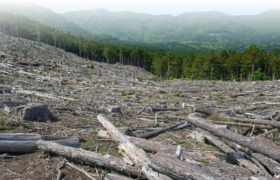By: Anmol Sheraz
South Waziristan (SW), nestled in the southwest of Khyber Pakhtunkhwa province, is an uncharted tapestry of scenic splendor in Pakistan, adorned with invaluable mineral-rich mountains, untouched pastures, and awe-inspiring vistas. The area bore the brunt of the war on terror, witnessing mass migrations, infrastructure devastation, and tragic loss of lives. Nonetheless, Pakistan armed forces, with their resolute security operations across all Newly Merged Districts (NMDs), successfully uprooted the menace of terrorism, also ushering in an era of development and prosperity for the people of South Waziristan.

Operation Raah-e-Nijat and Operation Black Thunderstorm in 2009 cleared most areas in SW bringing the area back in control of the state. An investment of around Rs. 35.52 billion for education, water, health, electricity, dams, irrigation, police, local government, livestock, agriculture and roads is in process.
The district administration along with the help of security forces has initiated public welfare projects such as organising medical camps and basic health units which include regular visits of specialists alongside arranging veterinary doctors for the vaccination of cattle.
An absolute focus is made on infrastructure development, streamlining smooth travel by building roads in the district. To ensure a clean water supply; water filtration plants have been made functional all-around SW. The prime focus is boosting agriculture through solar water supplies for agriculture projects. Proper plantation drives are practised and currently, the authorities have initiated vertical cultivation for healthier crops and field production. This also includes the Wana agriculture centre and cold store for storage of goods.
The tribal maliks, elders and district administration are emphasizing more on female education and women empowerment. Strict actions have been taken against ghost employees in primary schools in all villages, ensuring 100 per cent presence of teachers. Moreover, vocational training institutes bring forth and polish women’s skills, enabling them to earn from home and move towards financial stability. Institutions of Spinkai cadet college, FC public school Wanna and Falcon Public School, to name a few, are focusing on educating the youth and making them learn the vital role of education in bringing change in society.

In addition, to meet the need of today’s world, workshops and awareness sessions are being organized in the Information Technology (IT) sector with the establishment of an IT centre at Sarokai and Mola Khan Sarai; making use of IT in empowering women to utilise computers and technology for better income. A learning institute in Wana has been established for the development of women’s digital skills and to teach them the use of gadgets for business and work.
The area has been long affected by the war on terror. To cope with the post-war situation, sports and entertainment activities are also underway for the locals to engage them in a healthy environment and promote peace. Sports events like the Sarokai cricket tournament, Wana football championship, Taekwondo national judo karate championship and Commissioner D.I. Khan cycle race have been recently arranged to attract the residents of the area towards stability.

One of the mega events took place during Eid-ul-Adha 2023 at Gomal Zam Dam by the name of “Mela Da Gomal Zam” to highlight the serenity, peace, beauty and security situation in SW. Not only local residents but people across the province participated. Cultural dance, car drifting, tug-of-war, volleyball matches, fireworks etc were featured during the festival. The aim of the event was also to promote tourism in the area which has the highest potential for holiday businesses.
Despite the commendable efforts by the district administration and security forces, the success of these initiatives hinges on the active ownership and awareness among the people. These projects, institutes, workshops and healthy activities are for the people who must own these rather than resisting positive change. The area has severely suffered from Talibanisation and extremism but with the untiring efforts of security forces, the has now been neutralised. It is crucial for the residents to embrace and support positive change for the brighter and better future of Khyber Pakhtunkhwa. With its vast potential in minerals, tourism, natural resources, and trade, SW is poised for development and prosperity.





